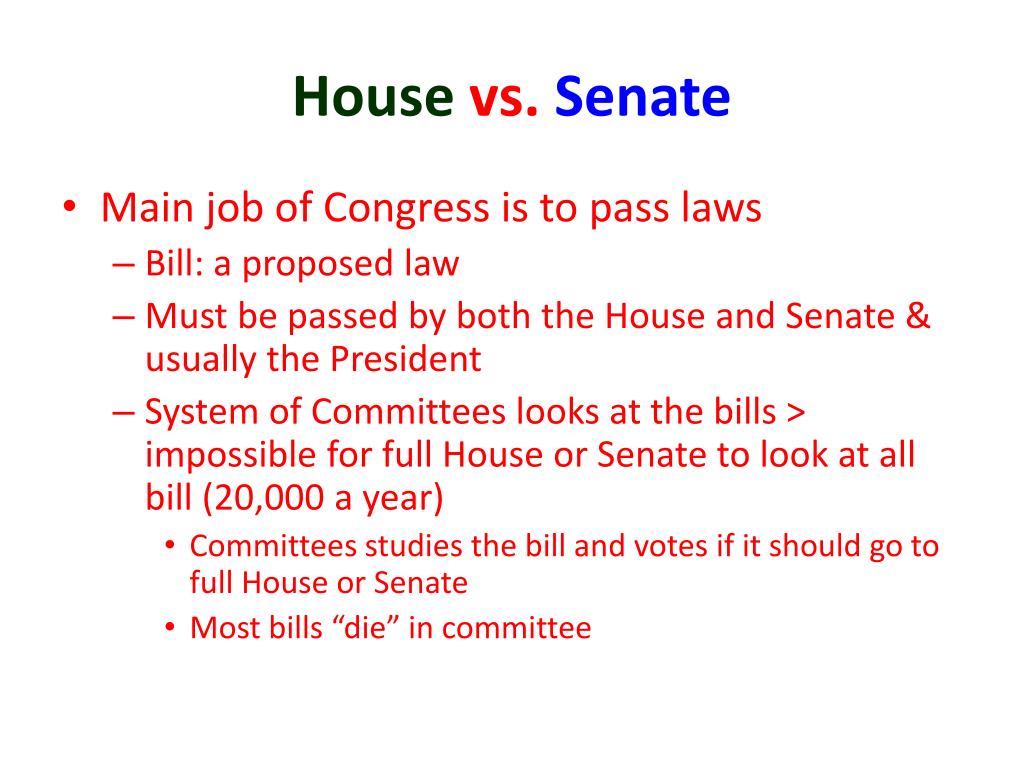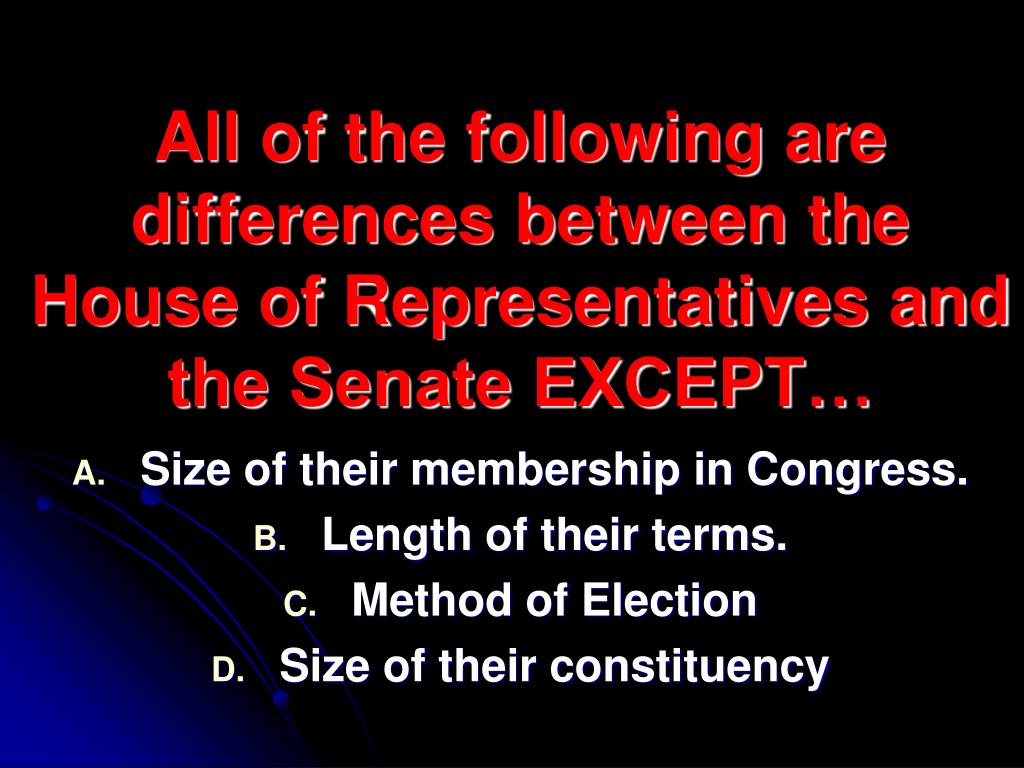Table Of Content

In order to pass legislation and send it to the President for his or her signature, both the House and the Senate must pass the same bill by majority vote. If the President vetoes a bill, they may override his veto by passing the bill again in each chamber with at least two-thirds of each body voting in favor. Congress has the power to override a presidential veto by a two-thirds majority vote of both the House and Senate. In addition to the Senate majority leader’s power to control debates on the Senate floor, the majority party is granted other rights in the operation of the Senate.
Government information
The legislation was widely seen as a significant step towards reducing the federal budget deficit and restoring the nation's financial stability. The decision of the framers to allow bills to pass the House after getting a simple majority of votes was motivated by the desire to allow legislation to be enacted quickly. The responsibility for assessing and developing bills belongs to standing committees that are chaired by members of the majority party, but are made up of members of both parties, as the Congressional Research Service explains. The succession order in the federal government is president, vice president and then Speaker of the House, the leader of the representatives.
Are the chambers equal in power?
The apportionment was to be based on an enumeration (population census) that was to be made within three years of the Constitution being ratified (approved) by the 13 states, and then every 10 years thereafter. To be eligible as a representative, a person needs to be at least 25 years old at the time of the election and have lived continuously in the U.S. for at least 7 years. To become a senator, one must be at least 30 years old at the time of the election and have lived continuously in the U.S. for at least 9 years. It is not a requirement to be a natural-born citizen in order to become a member of Congress.
Government Oversight
A closer look at the Oklahoma House and Senate budgets - Oklahoman.com
A closer look at the Oklahoma House and Senate budgets.
Posted: Sun, 21 Apr 2024 11:04:06 GMT [source]
Congress, as one of the three coequal branches of government, is ascribed significant powers by the Constitution. All legislative power in the government is vested in Congress, meaning that it is the only part of the government that can make new laws or change existing laws. Executive Branch agencies issue regulations with the full force of law, but these are only under the authority of laws enacted by Congress. The President may veto bills Congress passes, but Congress may also override a veto by a two-thirds vote in both the Senate and the House of Representatives.
The important role of political parties in the organization and functioning of the House is described by the House of Representatives Archive. The majority party elects a speaker of the house and chooses other leadership positions, including the chair of all House committees. There are more members of the House than of the Senate, so the majority party wields more power in the lower chamber. The decision of one senator can change the entire course of a bill in the Senate while a representative in the House cannot.
The Speaker is elected by the entire membership of the House of Representatives and was not traditionally a partisan figure. Enter your ZIP code in the banner of this page to find the representative for your congressional district. After being introduced, a bill is referred to the appropriate committee for review.
3 key differences between the Mass. House and Senate gun bills - WBUR News
3 key differences between the Mass. House and Senate gun bills.
Posted: Fri, 02 Feb 2024 08:00:00 GMT [source]
Finally, a conference committee made of House and Senate members works out any differences between the House and Senate versions of the bill. The resulting bill returns to the House and Senate for final approval. The Government Publishing Office prints the revised bill in a process called enrolling. Congressional districts have a smaller constituency than the state as a whole, and many House members have "safe seats," meaning that the political party in control of the district is highly likely to remain in control. This often leads to high incumbent election rates, as voters are more likely to re-elect the current representative rather than vote for a new candidate. Nevertheless, the House of Representatives remains a crucial part of the legislative process and plays an important role in representing the interests of the American people.
Labour promises mental health 'overhaul' after NHS psychiatrist defected to party from Tories
The Senate website explains that the majority party controls most committee staff and resources, but the minority party retains a level of control based on its share of Senate seats. The House majority leader is charged with formulating the party’s legislative agenda, as described by USHistory.org. The minority party chooses a minority leader whose impact on the House policy agenda is much more limited. The Constitution requires that senators be at least 30 years old, U.S. citizens for at least nine years, and residents of the states they’ll represent.
Senators’ terms are staggered so that about one-third of the Senate is up for reelection every two years. Senators must be 30 years of age, U.S. citizens for at least nine years, and residents of the state they represent. The procedure that Congress must follow to enact legislation is described in Article I, Section 7 of the Constitution. USA.gov explains that anyone who has an idea for a new law is encouraged to contact their U.S. representative or senator to suggest it. However, most bills originate in the offices of one or more of their legislative sponsors. This emphasizes the Senate’s duty to advise on and consent to actions taken in the House and by the executive branch of government.
The way in which the districts are drawn, however, can be influenced by the political party in control of the state legislature. This is because the state legislature is responsible for redrawing the districts to make sure each district is equal in population. In some cases, the legislature may choose to gerrymander the districts in a way that gives their political party an advantage in future elections. House leadership includes the speaker, majority and minority leaders, assistant leaders, whips and a party caucus or conference. The speaker acts as leader of the House and combines several institutional and administrative roles.
They are on average older than their counterparts in the House, and have an older minimum age to be selected, according to the Constitution. If a Washington politician has ambitions for higher things, then the Senate will provide a better springboard. Dennis Hastert, who was Speaker from 1999 to 2007, operated very much behind the scenes, while the House majority leader Tom DeLay .(the Hammer') drove the Republican agenda through the House.
These powers are derived from the Constitution’s necessary and proper clause in Article I, Section 8. The Constitution makes the vice president the president of the Senate, but the vice president is allowed to vote only to break a tie. The Senate is empowered to choose its own officers and president pro tempore to preside over the Senate when the vice president is unavailable. The House determines whether to impeach and if an impeachment is called for; the Senate decides whether to convict and remove the official from office. This follows a pattern established in the British government and American colonial governments dating back to the 17th century, as the Senate website explains. Committees also have subcommittees, which are formed to focus more closely on certain issues.

The compromise established that representatives in the lower house (House of Representatives) will be based on a population number (called a "district") while the upper house (Senate) would contain two representative from each state. It was also decided that all classes would be eligible to become senators, subject to age and residency restrictions. This allowed the legislation to pass even in the face of opposition from some members of Congress.

No comments:
Post a Comment